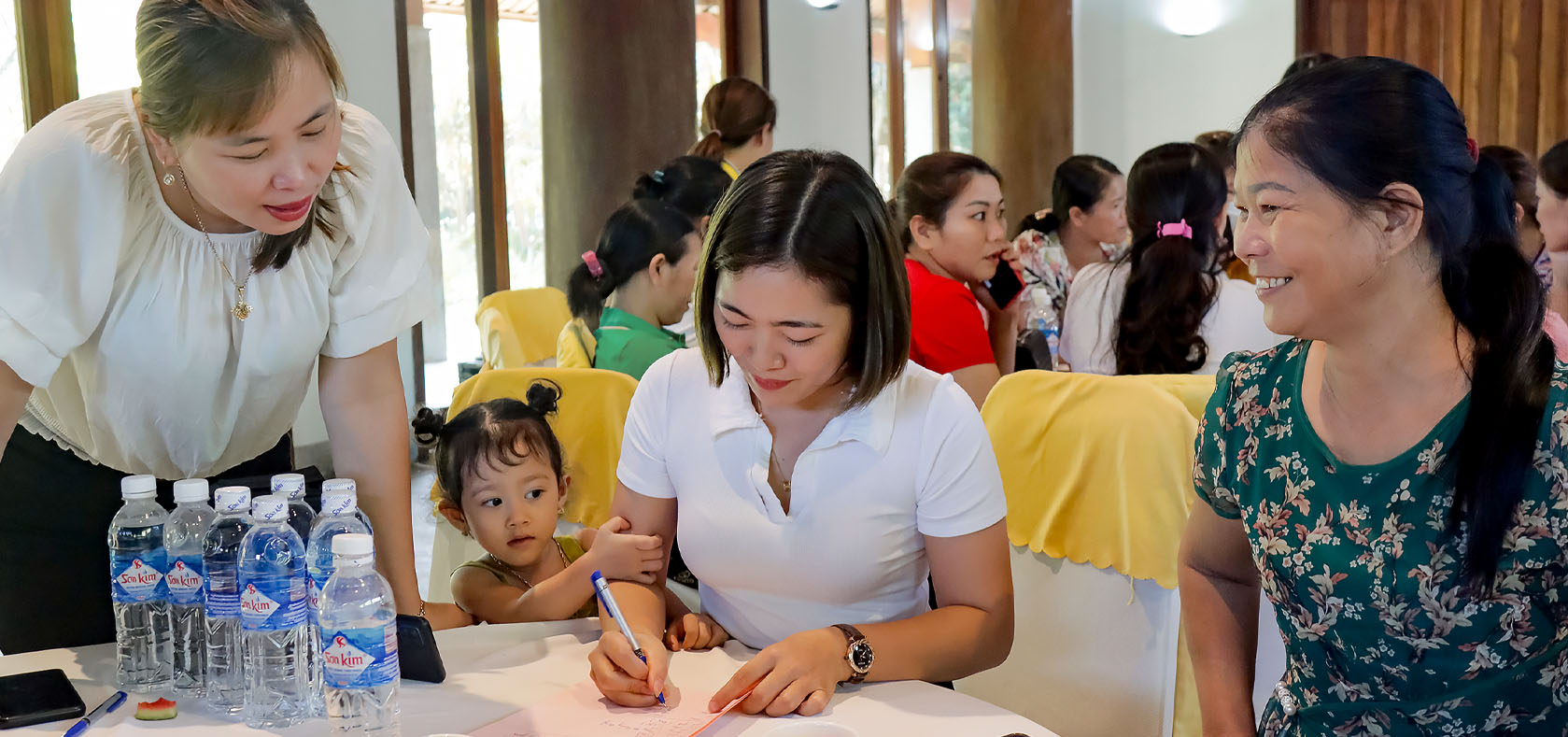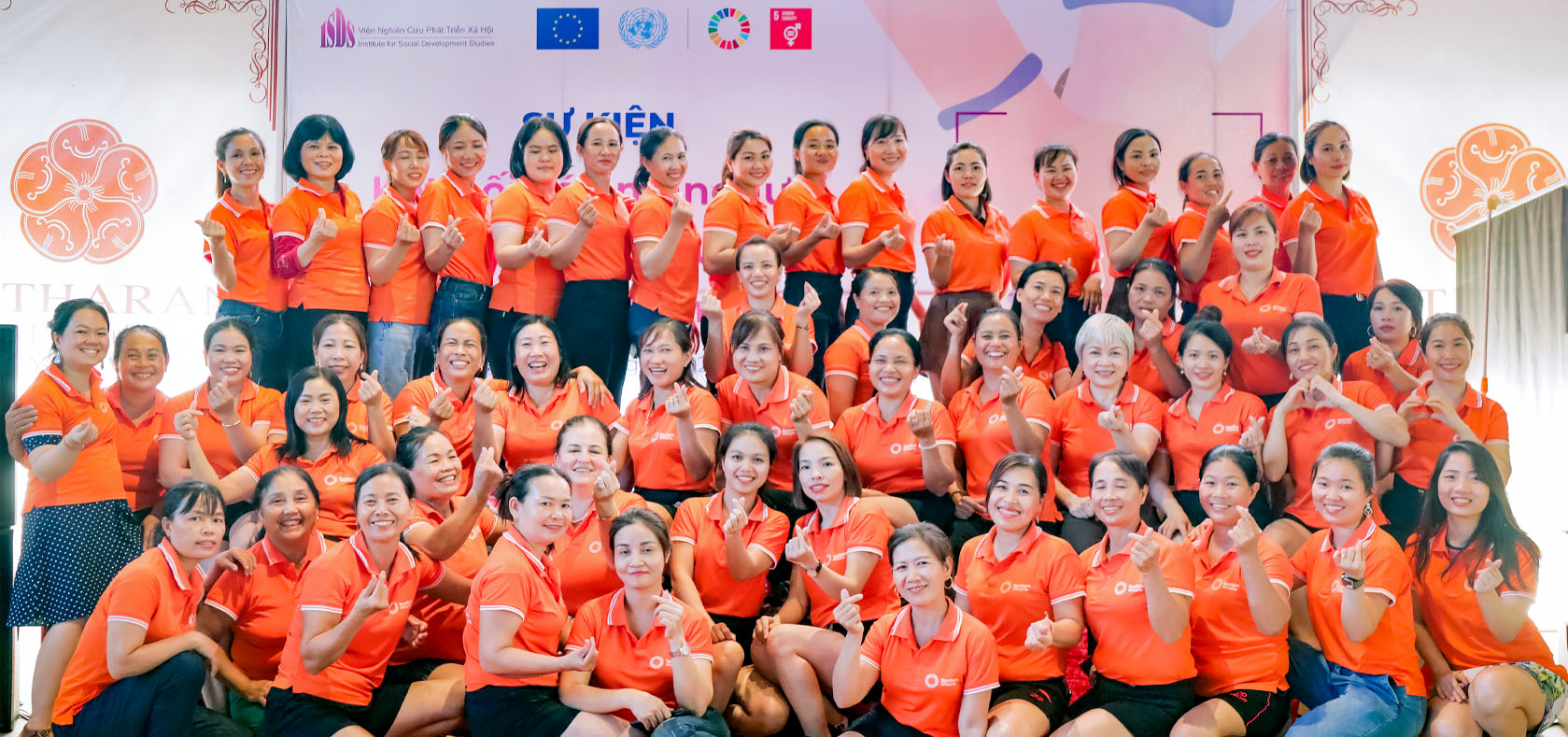Community-based networks help Vietnamese women migrant workers better protect their rights
Date:
Author: Thao Hoang
Ha Tinh, Viet Nam — “I have seven sisters and brothers. All of us have worked abroad, like 80 per cent of young people in my village“ said Thuy Tien, 29, a mother of two in Thach Long commune, Hong Linh district, Ha Tinh - a rural poor province from the North Central region of Viet Nam.

“I used to work in a restaurant abroad for 10 years with a monthly salary of 300 dollars. My salary was much lower than other migrant workers because I didn’t have a work permit,” Thuy Tien recalled.
She worked in another Asia-Pacific country, returned home after all loans were paid in 2019, but she wishes to go to work abroad again, targeting Europe. Her story is common in Ha Tinh province where the number of women migrant workers is very high. However, she was not counted in the national statistics on international labour migration and thus she could not benefit from government policies such as joining pre-departure training or benefiting from the fund for overseas labour, which cover documented migrants.
“Lacking migration documents and/or knowledge on gender-based violence, legal information and peers-connections cause high vulnerabilities of women migrant workers,” said Khuat Thu Hong, a gender expert and director of Institute for Social Development Studies (ISDS), a non-governmental research institute in Viet Nam.
In early 2021, Thuy Tien joined a network of 20 women migrant workers in Thach Long commune, Hong Linh district, Ha Tinh province. There are three other similar networks established in this province, with the aim to raise community awareness on safe migration, especially among women. With support from UN Women through ISDS, 60 core members from four networks received training and knowledge exchange on gender equality, prevention and response to gender-based violence, rights of migrant workers, ways to access information and quality support services in both the countries of origin and destination.
“In my commune, we have been operating various clubs such as the Gender Equality Club; When Mothers Are Away Club, Policies and Legislation for Women Club which can support labour migration in some ways. The peer networks that have been set up with support from the Safe and Fair programme have made direct contribution to enhancing safe migration and women’s agency in my commune where about 500 women have been working overseas." Said Ms Nguyen Thi Huong, President of Thach Long Commune Women’s Union.

Thuy Tien who now is an active member of the network can easily list out different risks to violence women migrant workers should watch out for when engaged in labour migration. She shared in a UN Women-supported workshop in June 2022 that she has learned a lot from the trainings as well as from her peers.
As a result, she has decided to go to work in Germany, probably in 2023, through documented migration. That route will cost her around 10,000 USD – to cover different types of fees such as fees for learning a language, air ticket, and visa, among others, but “this is safer, and our rights will be protected,” she said.
“The fee is big, but it helps to reduce many risks during my journey in Europe. I can get the money back with a good salary. If somethings go wrong, I can report to the police to claim my rights and seek for help,” Thuy Tien said.
According to the ILO’s General Principles and Operational Guidelines for Fair Recruitment, the workers shall not be charged directly or indirectly, in whole or in part, any fees or related costs for their recruitment. This is also supported by the ILO Private Employment Agencies Convention, 1997 (No. 181).
The Safe and Fair Programme is part of the European Union funded multi-year Spotlight Initiative jointly implemented by ILO and UN Women to eliminate violence against women migrant workers throughout their migration cycle in the 10 ASEAN countries. In Viet Nam, the Safe and Fair programme engages multiple partners to strengthen gender sensitive labour migration governance frameworks and institutional capacity for protecting rights of women migrant workers, enhance coordination and access to quality essential services among survivors of violence, and improve public awareness and attitude about the rights and contributions of women migrant workers.